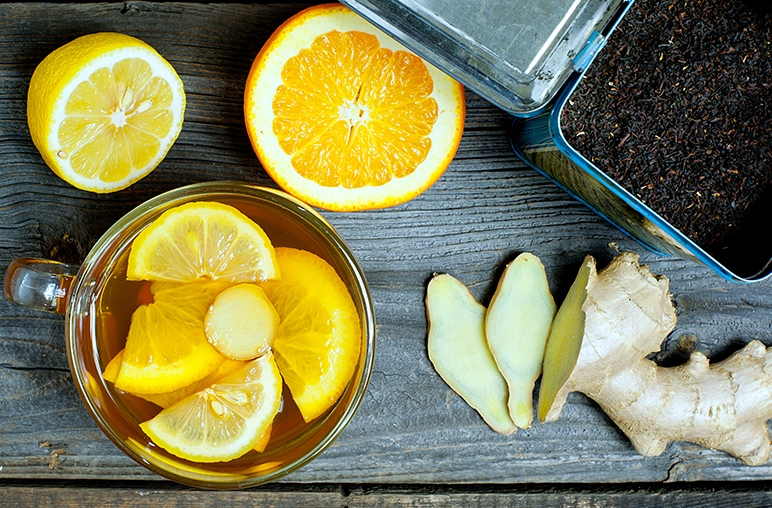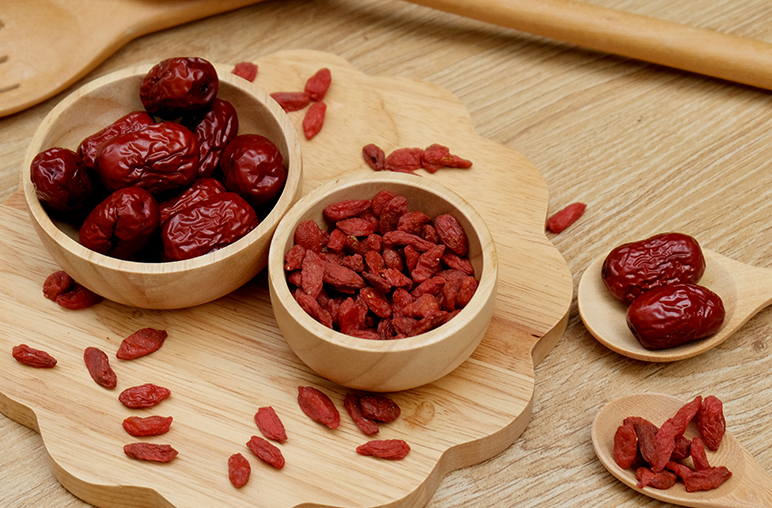Our body requires many different vitamins and minerals that are crucial to our development. These are often referred to as “micronutrients”. However, as our body is unable to produce these nutrients naturally, we have to seek them through our diet instead.
Nutrient deficiencies normally occur when the body does not receive the necessary amount of nutrients from the food we consume. Read on to learn about the common nutrient deficiencies and how you can identify the symptoms. We have also included recipes to increase your nutrient intake through the meals you prepare daily.
1. Iron

Are there days where you’re feeling drained and the thought of tackling housework just evaporates any energy left in you? Or do you feel dizzy when you stand up quickly from your seat? These are some symptoms of iron deficiency. Iron is essential for the formation of red blood cells, and is a common deficiency among menstruating ladies. However, this doesn’t mean that men are not affected by iron deficiency too. When you're low on iron nutrients, it causes an iron deficiency anemia, which is associated with fatigue, pale skin and hair loss.
Pump some iron into your diet by having red meat, seafood, such as fish and clams, or stir up a Chinese style sesame broccoli.
2. Magnesium

Are you losing your appetite, even when your favourite dish is right in front of you? Besides loss of appetite, early symptoms of magnesium deficiency can include nausea, vomiting, and weakness in your muscles. Magnesium is an essential mineral in energy production as well as muscle and nerve function.
Get this energy source through food containing magnesium, such as almonds and dark chocolate. Make yourself a lovely dark chocolate almond bar as a quick snack to munch on, while getting the nutrients you need.
3. Calcium

Did you know, calcium is the most abundant mineral in the body, and is vital for your bone health? Although calcium is easily found in our daily meals (like when you add milk with your coffee), the symptoms of calcium deficiency do not show immediately. If you do not consume enough calcium, in the long run it may lead to dental changes (affecting your teeth), or even causes the bone to become brittle.
Get your dose of calcium by drinking milk, or whipping a marmite chicken tofu stew to go along with your meals. Tofu is so versatile it goes well with both rice and noodles! However, if you’re lactose intolerant, you might have to acquire the nutrient through nuts and seeds instead.
4. Vitamin A

Getting your vitamin fix through the food you consume is a great way to enrich your body. Vitamin A does not only strengthen the immune system against infections, it is one of the crucial nutrients for eye health. Eye problems, such as dry eyes and night blindness, are signs of vitamin A deficiency.
Growing up, you might have heard your mum mention, “Eat your carrots, they are good for your eyes”. Turns out, they weren’t just trying to get you to finish up your vegetables. Consuming carrots, sweet potatoes, papayas, and eggs are indeed a way to increase Vitamin A in your body.
5. Vitamin C

Are your gums swollen, or do you notice them bleeding when you brush your teeth? Or do you have a wound that seems to be taking longer than usual to heal? These are the more common signs of Vitamin C deficiency, as Vitamin C has the ability to make collagen for the body which helps to heal wounds. Since the human body is unable to produce or store vitamin C, it is essential to consume this vitamin regularly in sufficient amounts.
Vitamin C is a water-soluble nutrient found in many foods, particularly fruits and vegetables. Eating fruits such as kiwis, lychee, and papaya are great sources of vitamin C. Either that or you can indulge in a strawberry smoothie and get your dose of collagen that way!
6. Vitamin D

Commonly referred to as “Sunshine Vitamin”, Vitamin D is produced by the body in response to skin being exposed to sunlight. However, if you're not a fan of the sun, this nutrient can still be acquired through consuming certain foods. Vitamin D is essential for healthy bones, as it helps the body maintain the right level of calcium for the development of teeth and bones. Bone pain and muscle weakness are some symptoms of Vitamin D deficiency. In the long run, lack of Vitamin D can cause osteoporosis (an age-related bone disease).
Get that vitamin D into your system by consuming fatty fish like salmon, or saute mushrooms to enjoy alongside your rice.










